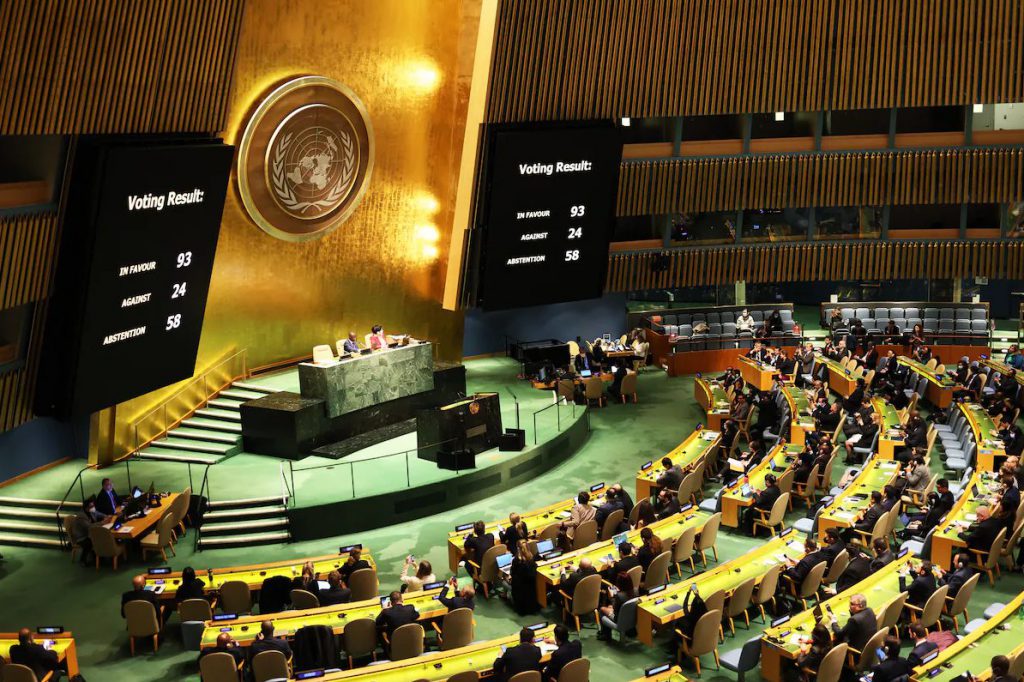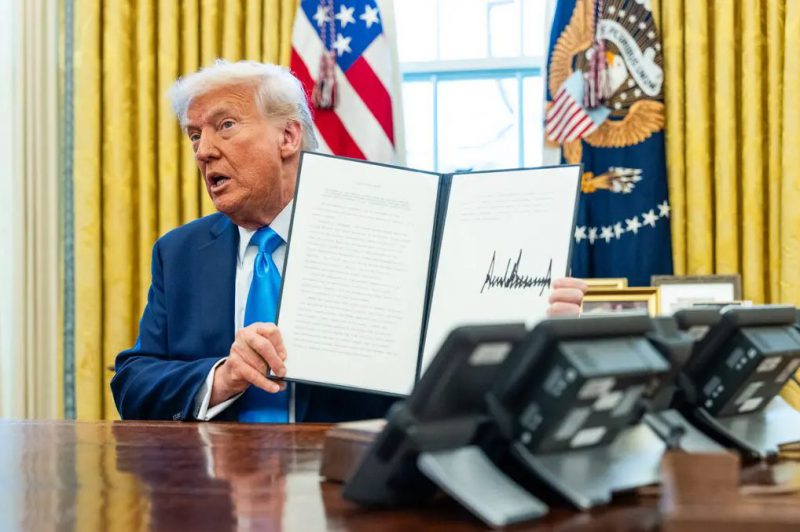US withdrawal from UN marked a dramatic shift in American foreign policy on February 4, 2025, as President Donald Trump signed an executive order withdrawing from the UN Human Rights Council over “deep anti-American bias.” This move follows Trump’s recent exits from the World Health Organization and Paris Climate Agreement, reflecting his Trump foreign policy of reducing American engagement with international bodies. The decision comes after the US transitioned to observer state status at the UNHRC in late 2024, when the Biden administration declined to seek council membership.
🚨 #BREAKING: President Trump has just signed an executive order WITHDRAWING the US from the United Nations Human Rights Council due to “deep anti-American bias”
— Nick Sortor (@nicksortor) February 4, 2025
HELL yes!
THIS is America First! 🇺🇸 pic.twitter.com/BgPjlFtiUo
Also Read: Dogecoin: AI Predicts DOGE Price For February 10 2025
US Withdraws from UN Human Rights Council: Trump’s Bold Foreign Policy Move


Executive Order’s Broad Scope
The US withdrawal from UN extends beyond the Human Rights Council. The order halts funding for UNRWA, the Palestinian aid agency, following allegations that twelve staff members participated in Hamas’s October 7 attack. Nine UNRWA employees were fired after UN investigations, while a Hamas commander was discovered to have held an UNRWA position. Previously, the US contributed $300-400 million annually to UNRWA before Biden paused funding in January 2024.
President Trump said:
“A lot of these conflicts that we’re working on should be settled, or at least we should have some help in settling them. We never seem to get help. That should be the primary purpose of the United Nations.”
UNHRC Structure and Controversies
The 47-member Human Rights Council, holding various meetings in Geneva, brings together multiple nations elected through secret ballot by the UN General Assembly. Several distinct regional blocs shape the council’s membership, with numerous African and Asia-Pacific states getting 13 seats each, while several Latin American countries hold eight spots, various Western nations claim seven seats, and a few Eastern European states occupy six positions. Here’s something striking – in the council’s entire history, only two nations have faced suspension: Libya and Russia.
White House Staff Secretary Will Scharf said:
“Wild disparity and levels of funding among different countries are deeply unfair to the U.S.”
Also Read: De-Dollarization: Will Trump’s “100% Tariffs” Save The US Dollar?
Financial and Diplomatic Impact
The US withdrawal from UN commitments affects the organization’s $3.6 billion annual American contribution, representing 22% of its core budget and 27% of peacekeeping operations. The UN’s 15-member Security Council, where the US holds permanent membership, faces criticism for failing to act on conflicts in Ukraine and Gaza due to vetoes from permanent members.
UN Secretary-General António Guterres’ spokesperson Stéphane Dujarric stated:
“U.S. support for the United Nations has saved countless lives and advanced global security. The Secretary-General looks forward to continuing his productive relationship with President Trump and the U.S. Government to strengthen that relationship in today’s turbulent world.”
UNESCO Review and International Response
The order mandates review of UNESCO participation, following the 2017 withdrawal when America halted its funding over alleged anti-Israel bias. After the US departure, UNESCO-Israel relations showed improvement. The current withdrawal prompted strong reactions from international organizations.
Amanda Klasing, national director of Amnesty International USA, said:
“President Trump’s performative decision to pull the U.S. out of the H.R.C. signals to the rest of the world that the U.S. is happy to completely cede important decisions about human rights violations happening across the globe to other countries.”
Richard Gowan, UN director of the International Crisis Group, said:
“Trump’s attacks on UNRWA and the U.N. Human Rights Council were widely expected. But the knock-on effects of the administration’s aid freeze are making U.N. officials increasingly nervous.”
Also Read: Cardano Founder Hints at Major Crypto Developments: February Could Get Wild





